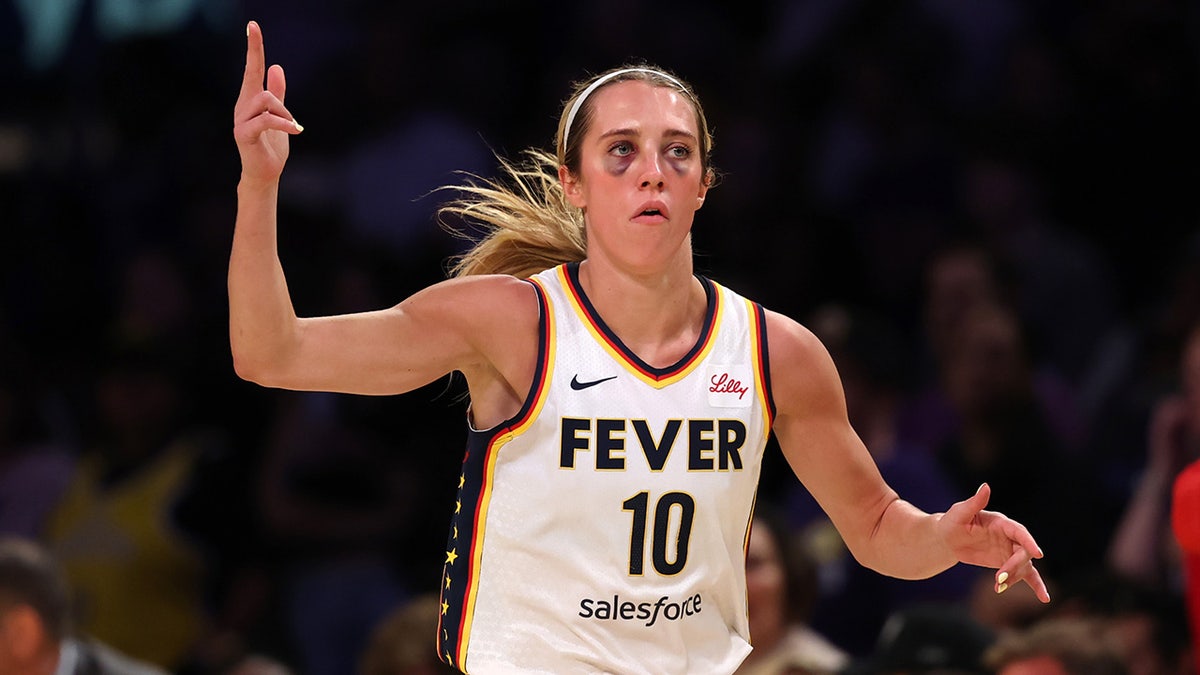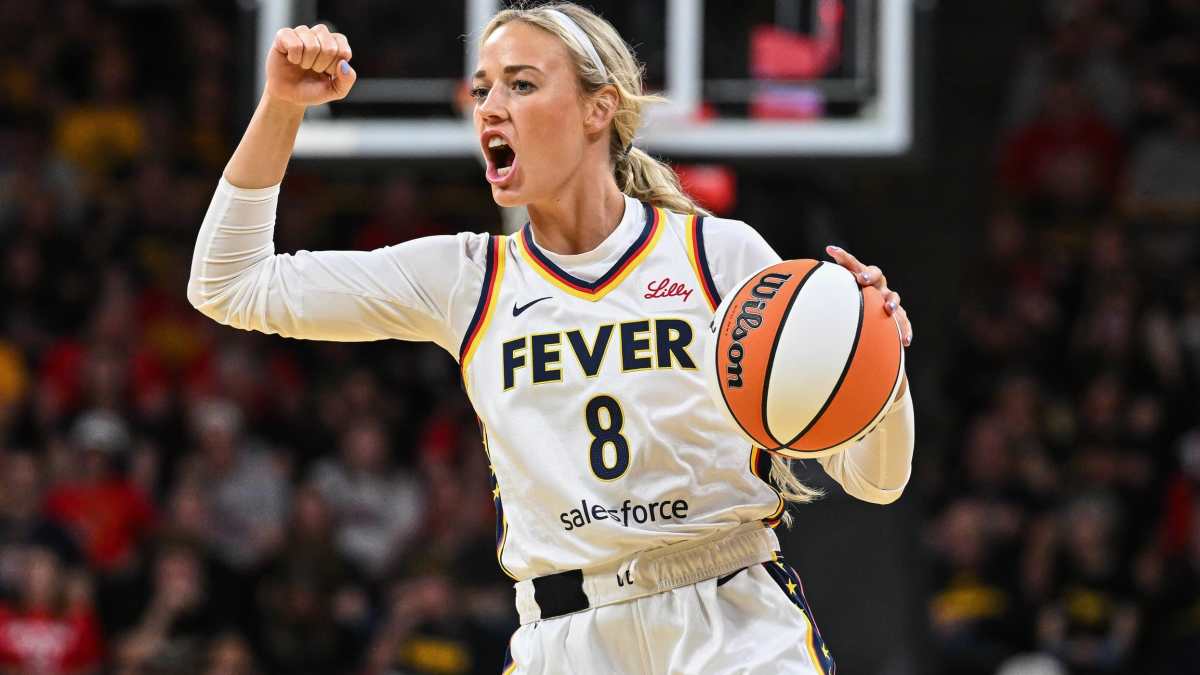In the superheated atmosphere of the new-look WNBA, where every move is scrutinized under the blinding spotlight of the Caitlin Clark effect, narratives can be forged and weaponized in an instant. For Phoenix Mercury forward Sophie Cunningham, that narrative was one she refused to accept. Labeled a “clout chaser” by prominent sports media personality Skip Bayless, Cunningham has come out swinging, not just to defend her own character, but to peel back the curtain on the complex and often brutal realities of life in a league undergoing a seismic transformation.

The accusation was simple and cutting: that Cunningham, a fiery and outspoken veteran, was merely using Caitlin Clark’s name to grab a piece of the media spotlight for herself. It’s a charge that has been leveled at several players in the league, a simplistic explanation for any veteran who dares to speak about the most talked-about rookie in sports history. But for Cunningham, the hypocrisy was too glaring to ignore. “I just think it’s comical that of all people, Skip Bayless, is calling me a clout chaser,” she stated, pointing out the irony of a media figure who used her name in his own headlines for clicks and engagement. “I didn’t even know he said it until someone sent it to me.”
This wasn’t just about a single comment; it was about challenging a narrative that misunderstands who she is at her core. “For people that have been watching me, they know this is how I’ve always been,” Cunningham asserted. Long before the private jets and sold-out arenas of the Clark era, Sophie Cunningham was a disruptor. She built her career on being the feisty, energetic, and sometimes “sassy” player who would do anything for her team—the kind of player who gets under an opponent’s skin and rallies her own bench. Her identity was forged in grit, not in piggybacking on someone else’s fame.
While forcefully pushing back on the personal attacks, Cunningham simultaneously gives credit where it is due, dismissing any notion that she is jealous of the league’s new superstar. She speaks with clarity and respect about the monumental impact Clark has had, acknowledging that the rookie sensation has brought “millions, if not billions” of new eyes to the sport. She compares Clark’s transformative power to that of legends like Kobe Bryant, Diana Taurasi, and Sue Bird, but correctly notes that the current social media landscape has amplified Clark’s influence to an unprecedented degree. For Cunningham, speaking on Clark isn’t “tagging along”; it’s stating an obvious and welcome truth about the explosive growth she and fellow rookie Angel Reese have brought to the WNBA.

However, Cunningham’s most passionate critique is reserved for a topic that directly impacts the health and safety of every player on the court: the officiating. With more eyes on the game has come a noticeable shift in how it’s being called. Cunningham expresses deep frustration with the league’s referees, who she believes are allowing an excessive level of physicality to go unchecked, creating a powder keg of escalating emotions and dangerous plays.
She points to a terrifying recent incident involving Indiana Fever’s Lexie Hull, who was viciously elbowed in the face by Kayla McBride following a jump ball. The blow was significant, leaving Hull injured, yet it wasn’t flagged as the high-level foul Cunningham felt it deserved. “The refs are letting it get to this point where players are getting hurt,” she warned. She described another incident where Hull was left with a black eye after an accidental collision, highlighting the brutal nature of the game even when intent is not malicious. The issue is the lack of control. While Cunningham is an advocate for tough, physical basketball, she insists there must be a line, and that line must be enforced consistently by the officials.
Her frustration boiled over when discussing a critical missed call on Fever guard Kelsey Mitchell, another star player. Cunningham described how Las Vegas’s Kelsey Plum clearly grabbed Mitchell’s arm on a crucial play, preventing a shot, yet no foul was called. “Why are we not protecting our stars?” she questioned, voicing a sentiment felt across the league. In an era where the WNBA’s biggest names are the drivers of its success, the failure of referees to protect them from illegal and dangerous contact is not just poor officiating—it’s bad business.
Finally, Cunningham confronts the critics who attempt to diminish her value by pointing to her stat line, specifically her eight-points-per-game average. “Basketball is more than just scoring,” she declared, pushing back against the narrow-minded analysis that dominates social media debates. She understands her role perfectly. She is the “glue,” the high-energy leader who dives for loose balls, defends the opponent’s best player, and is the first one to have her teammates’ backs. It’s a contribution that doesn’t always show up in a box score but is invaluable to a winning team.

“I know my role, I stay in my lane, and I’ll always defend my teammates,” she stated with pride. In that, Sophie Cunningham encapsulates the spirit of the WNBA veteran in this turbulent new age: proud, fiercely competitive, and unapologetically authentic. She is not a clout chaser; she is a warrior, fighting for her reputation, for the safety of her peers, and for a more nuanced understanding of what it truly means to be a valuable player in the best women’s basketball league in the world.